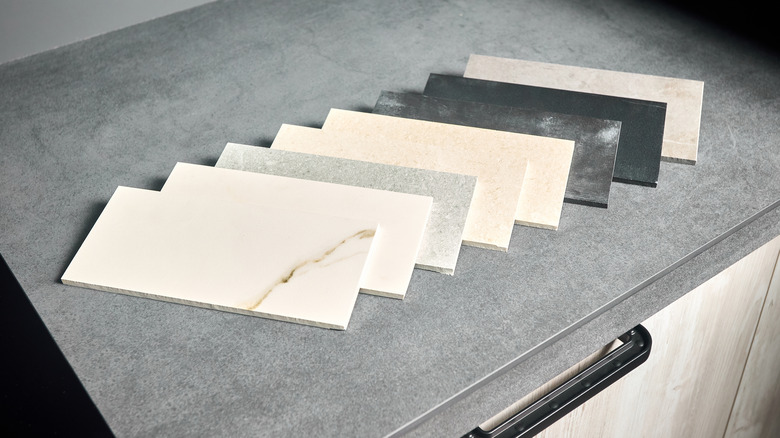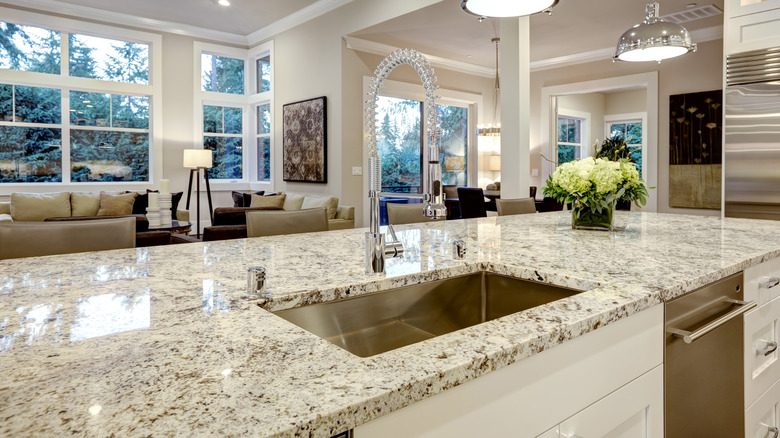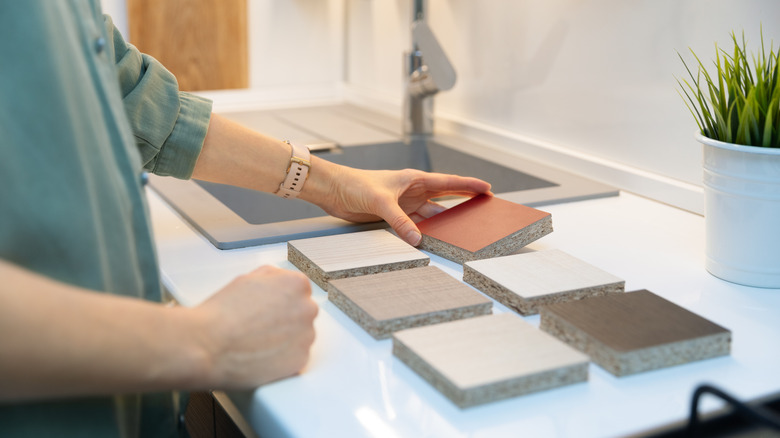The Number One Thing Everyone Overlooks When Buying New Kitchen Countertops
When you want new kitchen countertops, there are several things you need to consider. Among these considerations should be factors like stain resistance, how much the countertops cost, and how high or low maintenance the material is. While these are all important things to consider, one thing you may have overlooked when looking for a durable kitchen countertop is how resistant it is to heat. Though most people don't use direct heat on their countertops, there may be a moment when you put down a hot pan without realizing it and leave a huge scorch mark behind.
Even if there's no mark, however, using too high of a temperature on the wrong type of countertop can leave you with a discolored surface that shows signs of melting. This definitely isn't something you want to happen, especially if your chosen material was expensive. However, you can prevent this issue by taking the time to research which countertops can stand up well against heat before you purchase anything so that you won't run into any problems further down the line.
Double check the durability of countertop materials before committing
Granite is the first material you should look into if you want high heat resistance. Though they can be expensive, granite countertops can stand up to high temperatures (though we don't recommend putting hot things down on your countertop in general). The only issue arises when granite is heated unevenly, which is unlikely to happen to an extent where damage is visible. Granite's resistance to heat stems from its being forged by heat itself, so it's already used to high temperatures. This makes it an excellent option if you cook often and want the peace of mind associated with a heat-resistant material.
If you're looking for another durable material, look no further than stainless steel. Stainless steel is often used in professional kitchen environments, proving it can stand up well against a variety of cooking experiences. If you put something hot down on the surface of a stainless steel countertop, there will be no burn mark left behind. This type of countertop is also resistant to stains and rust, making it a solid choice if you want something low-maintenance. Plus, unlike granite, stainless steel surfaces do not have to be sealed.
Steer clear of these materials if you want heat-resistant countertops
Now that you know which materials perform well against heat, laminate is one countertop material you should reconsider buying. While much more affordable than granite and stainless steel, laminate has zero resistance against heat, meaning you'll probably notice a mark immediately after mistakenly putting something hot down. This even goes for putting down a mug of a hot drink, so we wouldn't recommend it if you want something that's lower maintenance.
Another countertop contender you should think twice about opting for is solid surface countertops such as Corian. While this type of countertop is better than laminate when it comes to heat, the amount of plastic used to make it means it's prone to melting and, therefore, not very heat resistant. It will also show signs of damage if you put a hot item down on it, though solid surface countertops have more resistance to high temperatures than those made from laminate. If heat resistance is an essential factor for you, opt for stainless steel or granite countertops. Both of these options can tolerate heat very well, making them a good choice.


